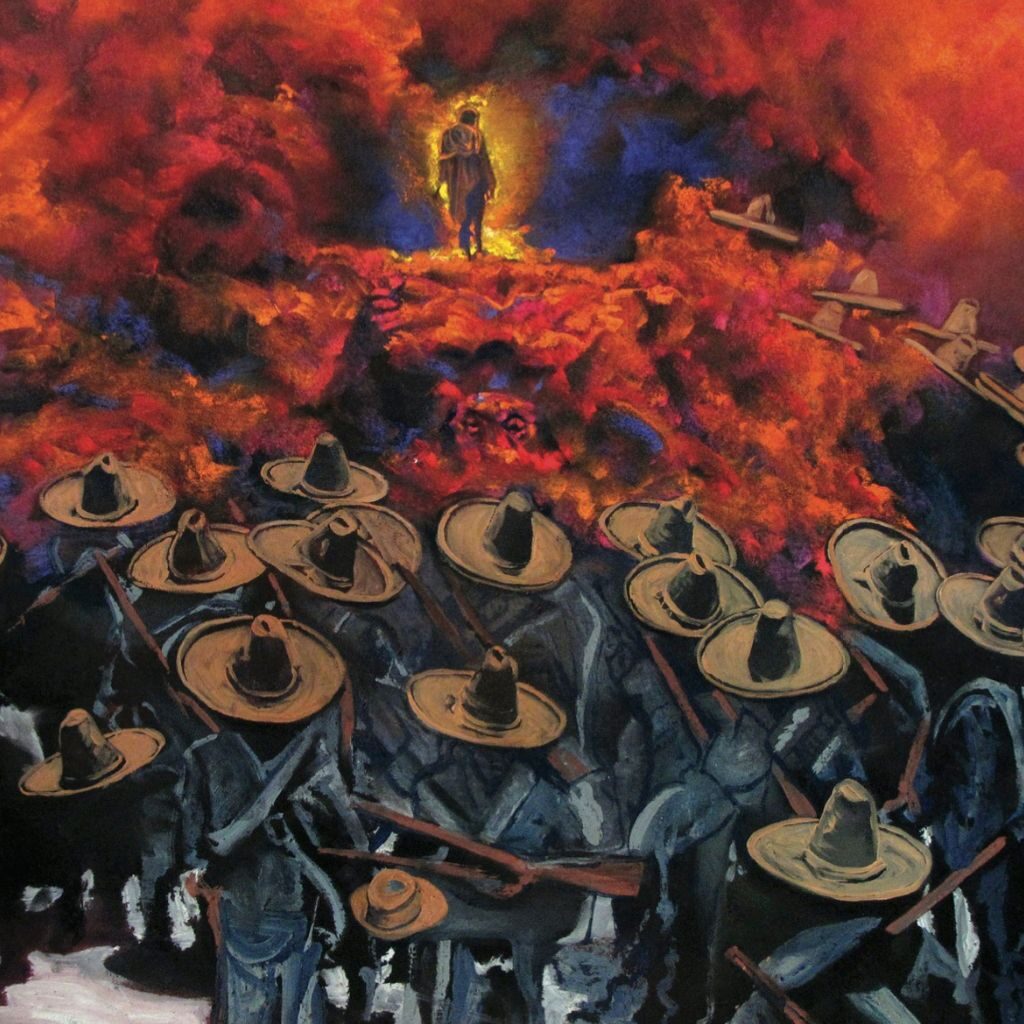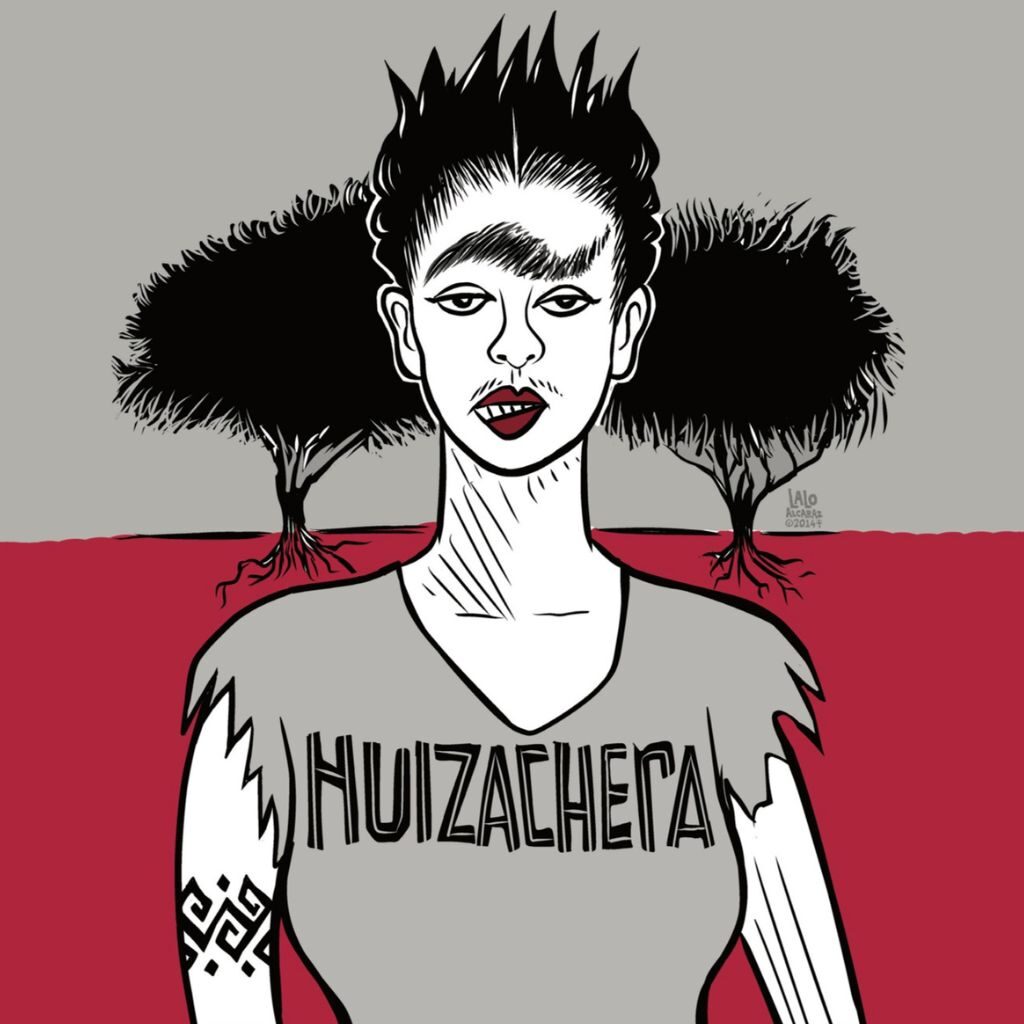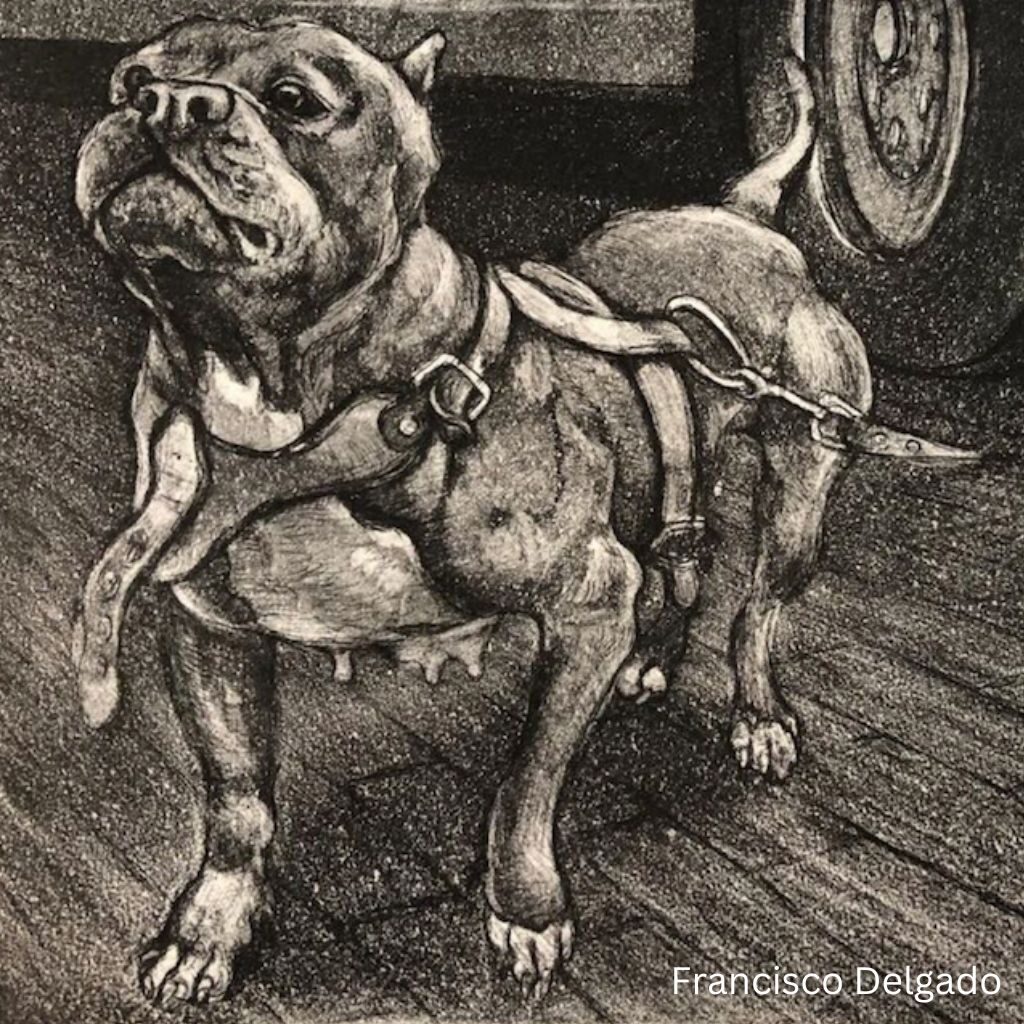READ
Featured
Foreword
From Huizache 9
Dagoberto Gilb
I came up fighting and surviving. I came up expecting to be good at what I did and wanting to catch up, get better, to be better. To not talk it but do it. Where I was, wasn’t where I wanted to stay.
I started working at thirteen because I needed money to take care of myself. Making my own money was my own power, my own independence. I worked through high school and through undergrad and grad years where I fed my starving brain. Soon a husband and father, I worked in construction for sixteen years, mostly as a high-rise union carpenter. I wrote stories when I could. When I published a book of fiction that won national literary prizes, change dropped on me suddenly. Though the only courses in English I’d ever taken were the required freshman ones at junior colleges, I became a professor in a well-established and high-quality mfa program. As a student, with no family money support, working, I’d focused on surviving and catching up with other students who always seemed to have gotten their skills and knowledge genetically at birth. Now a professor of graduate writing students, I saw how few like me there were. With my new job, I decided I would let a couple of Chicano students, dreaming of becoming writers, audit my mfa workshop. That got me yelled at loudly, the recognizable roar that preceded getting fired at any construction site. I relented by starting what we called the “illegal, undocumented workshop” that met weekly at my Austin apartment, outside the university’s vigilance. (Three of those went on to publish notable books.) In time, more brown students began applying and entering the program. But with system, history, dominant culture milieu and money and mores, I decided to go another route.
My writing career was doing fine (e.g., multiple times in The New Yorker). My life template had changed though. It wasn’t just my own battles and survival anymore. I became we. Do what for others what was never done for me, for you, for us. Build ladders, throw ropes down, and we climb over walls.
I considered moving on to big name universities. Good for me probably, as a play in new academic vita game for writers, but they were even less my world, not much better than what I already had as a job. And probably fewer students from the neighborhoods I knew. Then I interviewed at the University of Houston, Victoria, a school not on anyone’s map—a tiny college with oil endowed literary ambitions at the time, in a region that was first an outpost in New Spain, and then Old Mexico, until it became Texas. South Texas, where UHV was, is what I would still call Chicanolandia. The small undergraduate student body was close to 70% Mexican American, 25% Black. At the interview, when the then president asked me if there had ever been an HBCU type of college campus for Mexican Americans, I decided to push my chips all in.
House of SIlences
From Huizache 10
Elda María Román
When you want to talk to your father but don’t know how, you might end up with more frozen peas than you need. My grocery cart made it look like I was a vegan prepping for the end of the world, unsure of how to assemble a balanced meal, and I hadn’t yet summoned the courage to ask my father the question I needed to ask. Before this trip to the store, it had been a year since we’d spoken. It was 2021 and our silent stand-off started when I sided with my mother. When I was home the summer before, she’d been livid as she vented to me each night about his unwillingness to communicate. The final straw, she said, was him throwing a pillow at her while she was snoring. He’ll miss me when I’m dead, she said tearfully. It scared me that she would will herself dead to hurt him back.
The silence scared me, but in a different way than it used to. I thought of the TV show Vida, and the episode in which two Mexican American siblings mourn their father’s death. The brother breaks into sobs as he tells his sister he realizes he never knew his father, but also that his father didn’t know him. Recalling this episode, I sensed I was preemptively mourning the loss of both my parents. The current silence felt like a placeholder for more to come.
After this revelation, it still took me months to work up the courage to approach my father. I wanted to ask him about his life, but I didn’t know what he would say, and I still prime myself to be rejected by him. I didn’t want the proverbial pillow thrown at my head.
When I was home during that summer, I started small. Out of the house, there was no place for us to hide, no rooms to wall ourselves into, so I asked him if he would go to the grocery store with me.
I was nervous when he said yes.
Palmas últimas / Kasayeo’s Washintonia Filifera
From Huizache 10
Anna Flores
It’s said the desert’s last true palm self-shears,
dropping dead fronds by way of storm. The trees
are glaciation descendants. Know an
ocean’s true name. Know when desert arrived.
Leaf-less and blood welded, my body is
a knowing I cannot fall away from.
Words are my strange molting. I’m pronouncing
my city’s name, its tail curling. Its heart
in the ground. Language is sacred waste. It’s
eaten through short roots. I’m only my mouth’s
storyteller. I tell it of wildfires
two states over. Their archive, in my lung.
Ambahan: Araw ng mga Patay (Día de los Muertos)
From Huizache 10
Barbara Jane Reyes
I am giving you this smoke
rolled tobacco, flowered herbs
tanglad and clean fire, I burn
sandalwood incense, I burn
crackling pine branches, I burn
verses carved on bamboo stalks
verses from dreams and full moons
candles that smell like roses
handfuls of soil, I bring you
bayabas, mangga for you
ampalaya from the vine
sayote, fresh fragrant green
flores de kalabasa
sampaguita from the vine
pinecones, smooth stones I bring you



